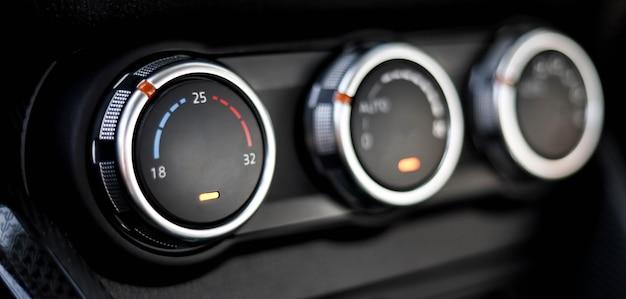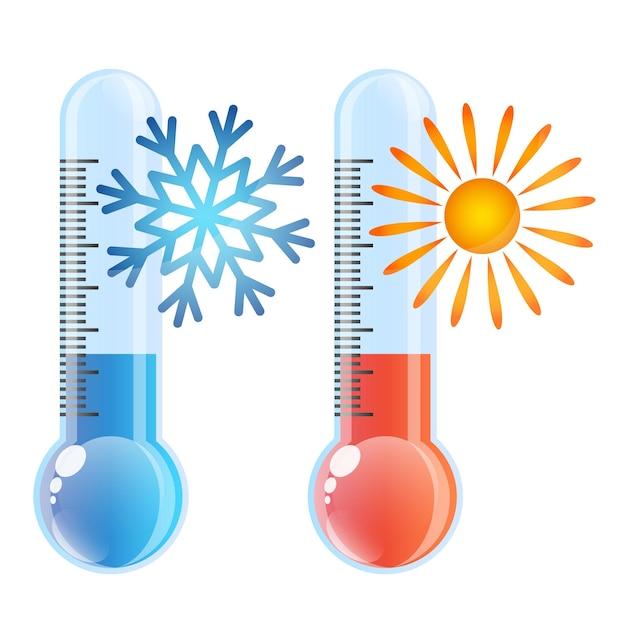Is your temperature gauge causing you some concern when your air conditioner is running? Don’t worry, you’re not alone. Understanding why your temperature gauge fluctuates when the AC is on can help you identify potential issues and take appropriate action. In this blog post, we’ll explore some common reasons for this phenomenon, including a stuck thermostat, a faulty AC compressor, a bad water pump, and more.
Disclaimer
Before we dive into the details, it’s important to note that if you’re experiencing persistent overheating or other serious engine issues, it’s always best to consult a qualified mechanic. While this blog post can provide some general troubleshooting tips, every vehicle is unique, and a professional diagnosis may be necessary for accurate identification and repair. With that said, let’s move on to our troubleshooting journey to understand why your temperature gauge might be misbehaving when the AC is on.
Temperature Gauge Acting Up? Don’t Blame It on the AC!
Why Does the Temperature Gauge Go Up When the Air Conditioner Is On
The moment you crank up the air conditioner in your car, havoc ensues! Suddenly, the temperature gauge starts climbing like Mount Everest, leaving you in a state of confusion and mild panic. But before you blame your trusty AC for this troubling phenomenon, let’s delve into the real reasons behind it.
The Cooling System Conundrum
One of the main culprits behind a rising temperature gauge when the air conditioner is on is an issue with the vehicle’s cooling system. This system is designed to regulate the engine’s temperature and prevent it from reaching boiling point. When everything is working smoothly, the cooling system keeps the engine cool regardless of your AC’s operation. So, what could be causing this mayhem?
Coolant Levels: The Fluid Enigma
Your engine’s cooling system relies on a vital fluid called coolant. Similar to how humans depend on water to stay cool, your engine relies on coolant to regulate its temperature. If your coolant levels are running low, your engine won’t be able to combat the heat produced when your AC is running full blast. Low coolant levels can lead to overheating, which causes the temperature gauge to skyrocket, much to your dismay.
The Thermostat Tango
Another key player in this temperature tussle is the thermostat. This small but mighty device helps maintain the ideal engine temperature by opening and closing when necessary. However, a malfunctioning thermostat can interrupt this dance and wreak havoc in the form of an overheating engine. So, if your temperature gauge is shooting up when the AC is on, it might be time to give the thermostat a little attention.
Coolant Fan Frenzy
Your vehicle’s cooling system is further supported by a heroic component known as the coolant fan. This fan swoops in like a superhero, cooling down the radiator and ensuring the engine remains at the right temperature. But if the coolant fan decides to take an unscheduled vacation or if it’s not functioning optimally, your temperature gauge will definitely rise when the AC is on, turning your peaceful drive into a sauna-like experience.
Take Control and Tackle the Issue
Now that you understand some of the potential causes behind your temperature gauge misbehavior, it’s time to take action. Start by checking your coolant levels regularly and topping them up as needed. Additionally, have your thermostat inspected by a qualified mechanic, as a faulty thermostat can wreak havoc on your engine’s temperature. Lastly, ensure that your coolant fan is in good working order and not taking a day off when it’s most needed.
Embrace the Cool Breeze, Fear Not the Gauge!
So, the next time your temperature gauge starts a rapid ascent while your AC is chilling your cabin, don’t automatically blame the air conditioner. Instead, roll up your sleeves and troubleshoot the real culprits: low coolant levels, a misbehaving thermostat, or a lazy coolant fan. By addressing these issues head-on, you’ll be able to enjoy the refreshing breeze of your air conditioner without the fear of your temperature gauge skyrocketing. Stay cool, my friends!
FAQ: Temperature Gauge Goes Up When Air Conditioner Is On
In this FAQ-style subsection, we’ll address common questions and concerns regarding a temperature gauge that goes up when the air conditioner is on. We’ll explore various possible causes and provide insights on how to identify and resolve these issues. So, let’s dive in!
Why is my temperature gauge stuck on cold
When your temperature gauge remains stubbornly fixed on the cold side, it’s likely indicative of a faulty thermostat. The thermostat regulates the flow of coolant through your engine, and if it fails to open properly, your engine won’t heat up as it should. Consider replacing your thermostat with a new one to resolve this issue.
How do you know if your car needs a new thermostat
There are a few telltale signs that your car may require a new thermostat. If your engine takes an unusually long time to warm up or doesn’t reach optimal operating temperature, it could be a sign of a faulty thermostat. Additionally, if your temperature gauge fluctuates frequently or if you experience overheating issues, it may be time to replace the thermostat.
How do you know if your AC compressor is bad
If your air conditioner isn’t cooling as it should or if you hear strange noises when it’s running, it could indicate a problem with the AC compressor. Look out for leaks around the compressor, reduced airflow, or a sudden increase in engine temperature when the AC is on. If you suspect a faulty AC compressor, consult a professional mechanic for a proper diagnosis and potential replacement.
What are the signs of a bad water pump
A malfunctioning water pump can cause overheating issues. Look for signs such as coolant leaks, a whining noise coming from the front of your engine, or visible corrosion on the pump itself. If the water pump fails, coolant circulation will be compromised, leading to engine overheating. Replace a faulty water pump promptly to avoid further damage.
How do I know if my AC temperature sensor is bad
An AC temperature sensor helps regulate the temperature inside your car. If you notice that your air conditioning system blows inconsistent cool air, fails to cool at all, or blows cold air even when it’s turned off, the AC temperature sensor may be faulty. Seek professional assistance to diagnose and replace the sensor if needed.
How do I know if my thermostat is stuck
A stuck thermostat can cause various issues, including an overheating engine. Signs of a stuck thermostat include engine temperature fluctuations, inadequate heat from the heater, or an engine that overheats quickly. If your thermostat seems to be stuck, consult a mechanic to properly diagnose the problem and replace the thermostat as necessary.
What would cause my temperature gauge to fluctuate
Temperature gauge fluctuations can stem from a range of issues. It could be a faulty temperature sensor, a failing thermostat, air or coolant leaks, a malfunctioning radiator fan, or even a problem with the gauge itself. Diagnosing the exact cause can be tricky, so it’s best to consult a professional mechanic to identify and resolve the issue.
How long can a car overheat before damage
An overheating car can lead to severe damage if not addressed promptly. Depending on the severity of the overheating, long-term damage may occur within minutes or even seconds. It’s crucial to pull over, turn off the engine, and let it cool down before assessing and resolving the issue or seeking professional assistance.
Why is my car overheating and blowing hot air
When your car overheats and blows hot air instead of cool air, it’s often a sign of a cooling system problem. This could result from a failed radiator fan, a malfunctioning water pump, a low coolant level, or a blockage in the system. Addressing the root cause, such as replacing a faulty component or clearing a blockage, should resolve the issue.
Why does my engine overheat when the AC is on
If your engine overheats when the air conditioner is on, it could be due to a variety of reasons. It may be a sign of a failing radiator fan, a worn-out water pump, low coolant levels, or even a clogged radiator. It’s essential to investigate and resolve the issue to prevent further damage to your engine.
How do you know if your thermostat is bad in your car
A malfunctioning thermostat can cause various symptoms, indicating it may be time for a replacement. If your engine takes too long to warm up, overheats frequently, or if your heater blows cold air consistently, a bad thermostat could be the culprit. Consult a professional mechanic to properly diagnose and address the issue.
How do I know if my ambient temperature sensor is bad
If your car’s ambient temperature sensor is faulty, you may notice erroneous temperature readings on your dashboard display. For example, it might display an incorrect exterior temperature or constantly read “-40°F.” In such cases, consider having the ambient temperature sensor replaced to ensure accurate readings and proper climate control.
Does running AC increase engine temperature
Yes, running your car’s air conditioner can increase engine temperature, especially in hot weather conditions or when the cooling system is compromised. The AC compressor puts an additional load on the engine, causing it to work harder and generate more heat. If your engine is prone to overheating, it’s advisable to be cautious when using the AC.
How can I cool down my engine fast
If your engine is overheating, you can take a few immediate steps to cool it down. Turn off the air conditioner, open the windows, and crank up the heater to full blast. This may seem counterintuitive, but it helps dissipate some of the heat from the engine. Pull over in a safe location and allow the engine to cool down before inspecting for any issues.
Can I pour water on my engine to cool it down
While it may be tempting to splash water on your overheating engine, it’s not recommended. Sudden temperature changes can cause stress and potential damage to the engine block. It’s best to allow the engine to cool naturally by turning off the car and refraining from any further intervention until it reaches a safe temperature.
What can cause a car to run hot but not overheating
If your car runs hot but doesn’t reach the point of overheating, it could indicate an underlying issue. Possible causes might include a restricted radiator, a malfunctioning radiator fan, low coolant levels, a failing water pump, or a clogged cooling system. Addressing the root cause promptly will help prevent more severe problems in the future.
Does coolant temp sensor affect AC
Yes, the coolant temperature sensor plays a crucial role in the functioning of the air conditioning system. It helps regulate the compressor and ensure efficient cooling. If the coolant temperature sensor is faulty, it may cause the AC to malfunction or blow inconsistent cool air. Replacing the sensor should resolve this issue.
Can a bad AC compressor cause overheating
While a bad AC compressor itself may not directly cause overheating, it can put an additional strain on your engine. This heightened load can push your cooling system to its limits, potentially leading to overheating issues. If you suspect a bad AC compressor, it’s important to have it inspected and repaired to avoid any associated complications.
That concludes our FAQ-style subsection on temperature gauge issues when the air conditioner is on. We hope this comprehensive guide has provided helpful insights and solutions to address your concerns. Remember, if you encounter persistent temperature gauge or AC-related problems, consulting a professional mechanic is the best course of action!

